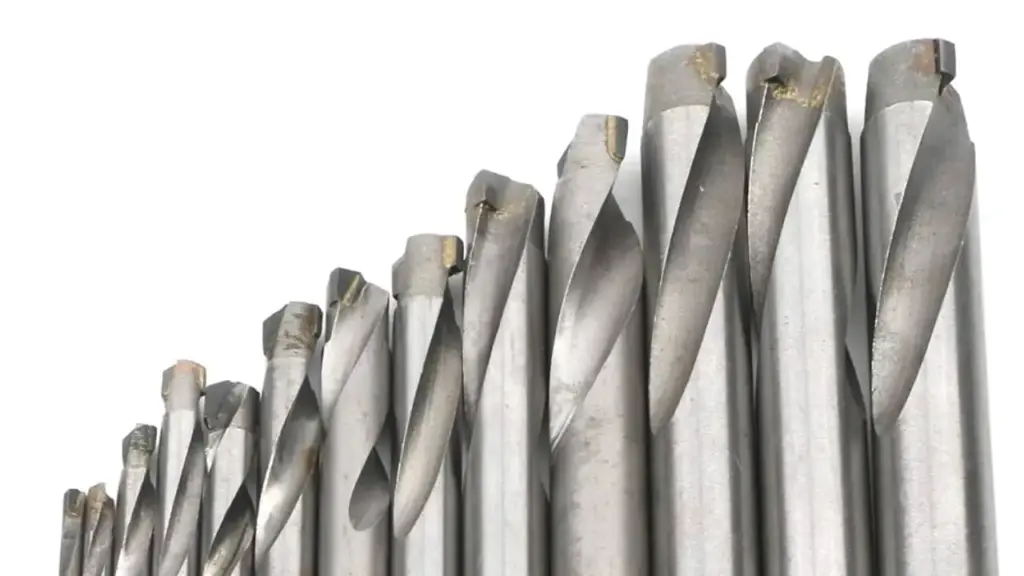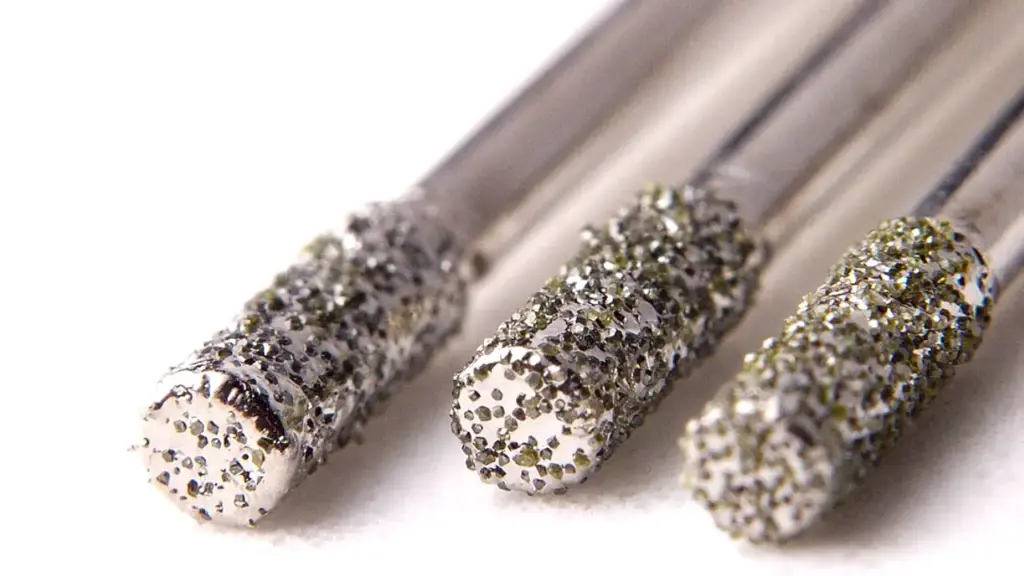Tungsten carbide and diamond drill bits stand as titans in material removal, yet they cater to distinct drilling demands. While both exhibit exceptional hardness, their composition and manufacturing processes lead to significant differences in cost, optimal applications, and performance characteristics. Understanding these nuances is crucial for selecting the right tool for the job.
This blog post will delve into the key distinctions between tungsten carbide and diamond drill bits. We’ll explore their respective strengths and weaknesses, examining factors such as material compatibility, wear resistance, drilling speed, and cost-effectiveness. By comparing these attributes, you’ll gain the insights needed to make informed decisions for your drilling projects.
What are Tungsten Carbide Drill Bits

Tungsten carbide drill bits are cutting tools made from an extremely hard and rigid composite material composed of tungsten and carbon atoms, known for their exceptional hardness, wear resistance, and ability to maintain a sharp cutting edge at high temperatures.
This makes them suitable for drilling through a wide range of tough materials including metals, hardwoods, masonry, and some composites, often outperforming standard steel bits in demanding applications and offering increased longevity.
What are Diamond Drill Bits

Diamond drill bits are specialized cutting tools that utilize industrial-grade diamond particles embedded in a metallic matrix to achieve exceptional hardness and cutting ability, making them ideal for drilling through extremely hard and abrasive materials such as tile, ceramic, porcelain, glass, stone, concrete, and even some metals.
Unlike other drill bits that rely on sharp edges to cut, diamond bits work by grinding away material, resulting in precise, clean holes with minimal chipping or cracking, especially when used with water for cooling and lubrication. Their superior durability and performance in demanding applications justify their higher cost compared to conventional drill bits.
Tungsten Carbide vs Diamond Drill Bits

Choosing the right drill bit is crucial for efficient and effective drilling, especially when tackling diverse materials. Tungsten carbide and diamond drill bits represent two distinct categories, each with unique properties that cater to specific applications.
Understanding their fundamental differences in composition, cutting mechanism, performance characteristics, and cost implications will empower you to make informed decisions for your drilling needs. Let’s delve deeper into these contrasting yet valuable tools.
Material Composition and Manufacturing
Tungsten carbide drill bits are manufactured by combining fine powders of tungsten and carbon, along with a binder metal like cobalt or nickel, under high pressure and temperature in a process called sintering. This process creates an exceptionally hard and wear-resistant material capable of withstanding significant stress and heat.
The specific grade of carbide, determined by the ratio of tungsten carbide to the binder metal and the grain size, influences the bit’s toughness and hardness, allowing for tailored performance in various materials. Different geometries and coatings can also be applied to enhance chip evacuation and reduce friction.
Diamond drill bits, on the other hand, utilize industrial diamonds, which are either natural or synthetic, embedded into a metallic matrix, typically made of bronze, cobalt, or nickel alloys. The diamonds, being the hardest known material, provide the cutting action.
These drill bits are manufactured using processes like sintering, electroplating, or vacuum brazing to securely bond the diamond particles to the bit body. The size, quality, and concentration of the diamonds, as well as the matrix material, are critical factors determining the bit’s cutting efficiency, lifespan, and suitability for specific hard materials.
Cutting Mechanism and Performance
Tungsten carbide drill bits primarily cut through material by shearing and chipping. Their sharp cutting edges, formed by grinding the hardened carbide, effectively remove material as the bit rotates. While robust, these edges can wear down over time, particularly when drilling through very hard or abrasive materials, necessitating periodic sharpening or replacement. They generally perform well at higher speeds and feed rates in softer materials like wood and metal, offering a balance of speed and durability for general-purpose drilling.
Diamond drill bits employ a grinding action rather than traditional cutting. The extremely hard diamond particles abrade away material as the bit rotates, making them exceptionally effective on brittle and hard substances where conventional bits would quickly dull or fail.
Due to this grinding action, they typically require lower rotational speeds and consistent coolant flow, usually water, to dissipate heat and remove debris. This controlled process ensures clean, precise holes with minimal damage to the surrounding material, making them indispensable for applications like tile installation, stone fabrication, and geological coring.
Applications and Cost Considerations
Tungsten carbide drill bits are widely used in various industries, including metalworking, woodworking, and construction, for drilling holes in a broad range of materials. Their versatility and relatively lower cost make them a popular choice for general-purpose drilling tasks. Different designs, such as twist drills, spade bits, and hole saws with carbide tips, cater to specific applications and hole sizes. While they offer good performance on many materials, their lifespan can be significantly reduced when used on extremely hard or abrasive materials without proper technique and cooling.
Diamond drill bits are specifically designed for drilling through exceptionally hard and brittle materials where other bits struggle or fail. They are essential tools in industries such as tile and stone installation, glass manufacturing, construction (for drilling concrete and masonry), and geological exploration (for core sampling).
Due to the high cost of industrial diamonds and the specialized manufacturing processes, diamond drill bits are generally more expensive than carbide bits. However, their extended lifespan and superior performance on challenging materials often provide a better long-term value in specific applications where precision and durability are paramount.
How to Choose Tungsten Carbide vs Diamond Drill Bits
Tungsten carbide and diamond drill bits serve distinct purposes based on their material composition and cutting mechanisms. Tungsten carbide bits, made from a hard composite of tungsten and carbon, offer a cost-effective solution for drilling a wide range of materials.
Their strength and heat resistance make them suitable for general-purpose use in wood, metal, and some masonry. While durable, they may require more frequent sharpening or replacement when encountering very hard substances.
Diamond drill bits, utilizing industrial diamonds embedded in a matrix, excel in cutting through exceptionally hard and abrasive materials like tile, stone, and concrete. Their grinding action ensures clean and precise holes with minimal damage. Although more expensive initially, their longevity and superior performance on challenging materials often provide better long-term value for specialized tasks demanding accuracy and durability.
Material Hardness and Durability: Tungsten carbide boasts significant hardness and wear resistance, allowing it to effectively drill through various materials without rapid degradation. However, diamond, being the hardest known natural material, offers unparalleled durability and the ability to cut through substances that would quickly dull or destroy carbide bits. This inherent hardness translates to a longer lifespan and consistent performance when working with extremely tough materials.
Cutting Mechanism: Tungsten carbide drill bits primarily cut by shearing and chipping away material using their sharp edges. This method is efficient for softer materials but can lead to increased wear and tear when faced with high resistance. In contrast, diamond drill bits employ a grinding action, where the diamond particles abrade the material. This process, while sometimes slower, is far more effective for brittle and very hard substances, resulting in cleaner cuts and reduced risk of material damage.
Application Versatility: Tungsten carbide drill bits are highly versatile and find widespread use in general-purpose drilling across various industries, from woodworking to metal fabrication and basic construction. They come in numerous designs optimized for different tasks. Diamond drill bits, however, are specialized tools primarily used for materials that carbide cannot efficiently handle, such as in tile installation, stone processing, glass cutting, and geological coring, where precision and the ability to cut through extreme hardness are essential.
Cost and Longevity: Tungsten carbide drill bits are generally more affordable upfront, making them a cost-effective choice for many common drilling needs. However, their lifespan can be shorter when used on very hard materials. Diamond drill bits have a higher initial cost due to the expense of industrial diamonds and specialized manufacturing. Despite this, their exceptional durability and long lifespan when used appropriately on their intended materials often result in a lower overall cost per hole in specialized applications.
Conclusion
Tungsten carbide drill bits offer a cost-effective and versatile solution for general-purpose drilling across various materials. While durable for their intended use, they may require more frequent sharpening or replacement compared to diamond bits. Their affordability makes them a practical choice for many applications.
Diamond drill bits excel in precision and are the superior choice for drilling through hard and abrasive materials like tile, concrete, and stone. Their exceptional hardness ensures a longer lifespan and cleaner cuts, justifying their higher initial cost for specialized tasks demanding accuracy and durability.
Ultimately, the choice depends on the specific drilling needs and budget. For those seeking wholesale drill bits, Sinodrills offers a variety of rock drilling tools, including carbide options, suitable for different industrial applications. Consider your project requirements to select the optimal bit type and supplier.


